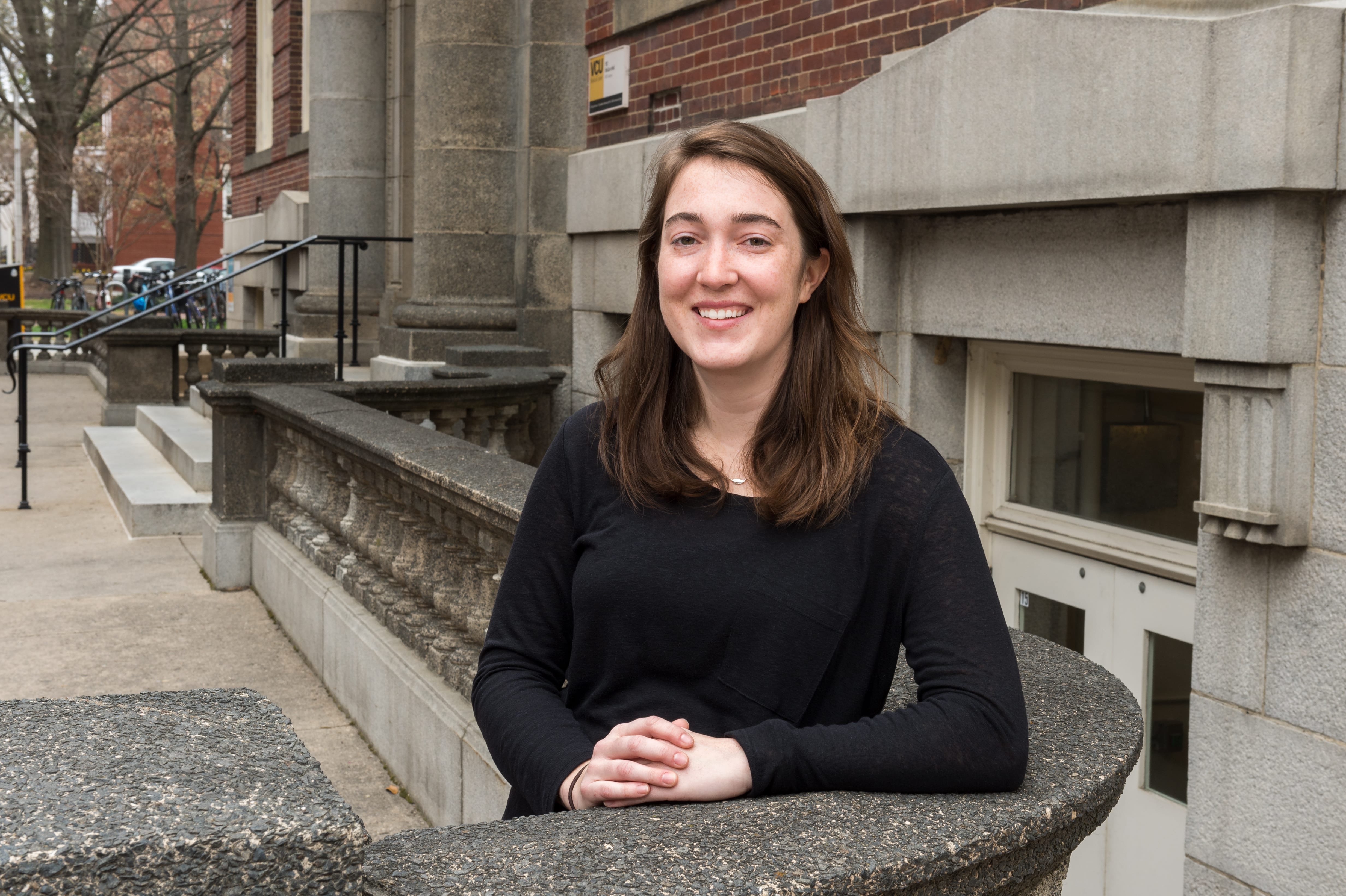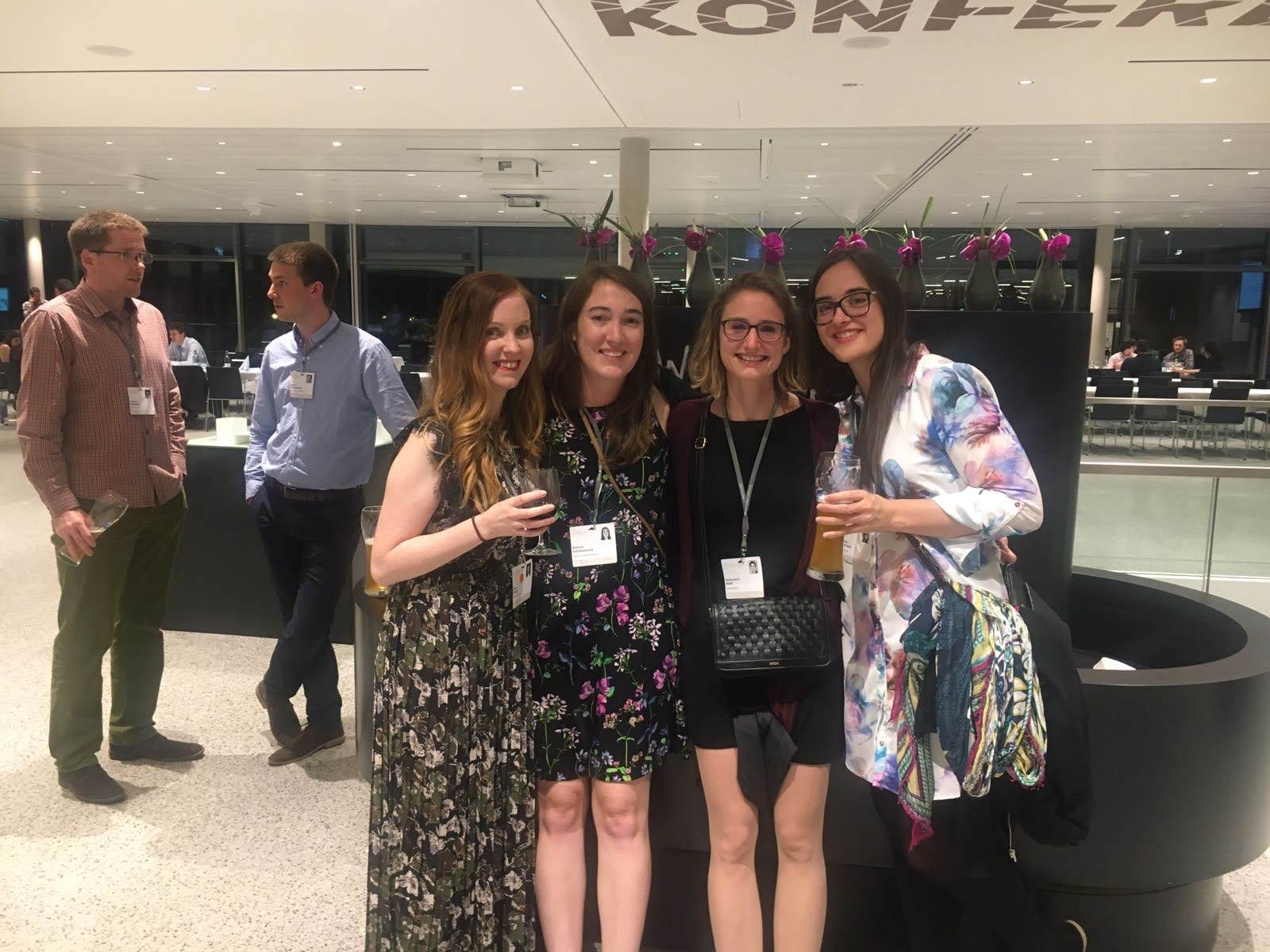Prescribing change for a national epidemic

By Brelyn Powell
Kathryn Schwienteck, Pharm.D., Ph.D. (Pharm.D.’15/P; Ph.D.’19/M), first became passionate about learning how drugs affect the human brain studying neuroscience as an undergraduate at the University of Pittsburgh in Pennsylvania. After she graduated in 2011, the Pennsylvania native came to Virginia Commonwealth University for her doctoral education to take a step toward putting that passion to use helping the community.
“Psychoactive drugs and drugs of abuse have been my primary interest since I took a few different courses on the way drugs impact behavior, so I knew I wanted to do something related to helping the opioid crisis,” Schwienteck says.
Initially, Schwienteck was drawn to Richmond, Virginia, for its urban but not-too-overwhelming atmosphere.
“It felt similar to Pittsburgh, and once I learned more about VCU and the School of Pharmacy, I was set,” she says.
As soon as she earned her Pharm.D. from the VCU School of Pharmacy in 2015, Schwienteck enrolled in the VCU School of Medicine’s Pharmacology and Toxicology Ph.D. program to narrow her focus on research. She worked closely in the lab with her adviser, Matthew Banks, Pharm.D., Ph.D., studying potential treatments for opioid use disorder.
“Our department has an established history of training, encouraging and supporting the next generation of scientists to improve human health and treat human suffering,” Banks says. “The type of opioid research that Dr. Schwienteck conducted is critical for the development of novel and more effective medications for the treatment of opioid use disorder.”

Schwienteck had the opportunity to discuss her work with other young scientists when she joined 600 students from 84 countries in Lindau, Germany, at the 68th Lindau Nobel Laureate Meeting in 2018.
“Even though other countries are experiencing surges of opioid use and overdose, a lot of the problem is here in the United States, so it was interesting to talk to other attendees about that,” she says. “I learned a lot about fields of research that I’m not involved in, too. I met people who were working on environmental research related to climate change and other topics that were really relevant to today’s world.”
Attending the conference, Schwienteck says, was one of her biggest goals for her graduate career because she knew it would push her outside of her comfort zone.
“I was used to being in a lab every day doing my experiments, and I knew that I would need to push myself outside of my comfort zone to interact with scientists and Nobel Laureates from different backgrounds to get the most out of it,” she explains. “The conference was a growing experience for me.”
Now Schwienteck has transitioned from conducting preclinical experiments in the lab to working directly with patients on clinical research initiatives as a postdoctoral research fellow at the VCU C. Kenneth and Dianne Wright Center for Clinical and Translational Research. Continuing her work to combat the opioid crisis, her current research under Wright Center Director F. Gerard Moeller, M.D., aims to forge collaborations with emergency room health care providers to identify overdose survivors and place them into immediate, long-term treatment.
“It’s vital to raise awareness among doctors and other health care professionals about the importance of getting people into treatment as quickly as possible,” Schwienteck says. “People are overdosing and dying from opioid use every day. There’s a stigma against people who have opioid substance use disorder, and they’re not getting the attention that they need. It’s important that they know there is help for them.”
In addition to the hours she spends as a research fellow, Schwienteck also works for VCU Health as a staff pharmacist. She isn’t quite sure what her ultimate professional ambition is, but after her research fellowship ends, she hopes to take steps toward a career that combines all of her professional strengths.
“Clinical research is very different than preclinical research, but I’m really enjoying it,” Schwienteck says. “I want my career to continue in that direction, and my dream is to find a job that incorporates aspects of both research and pharmacy.”
Categories Alumni